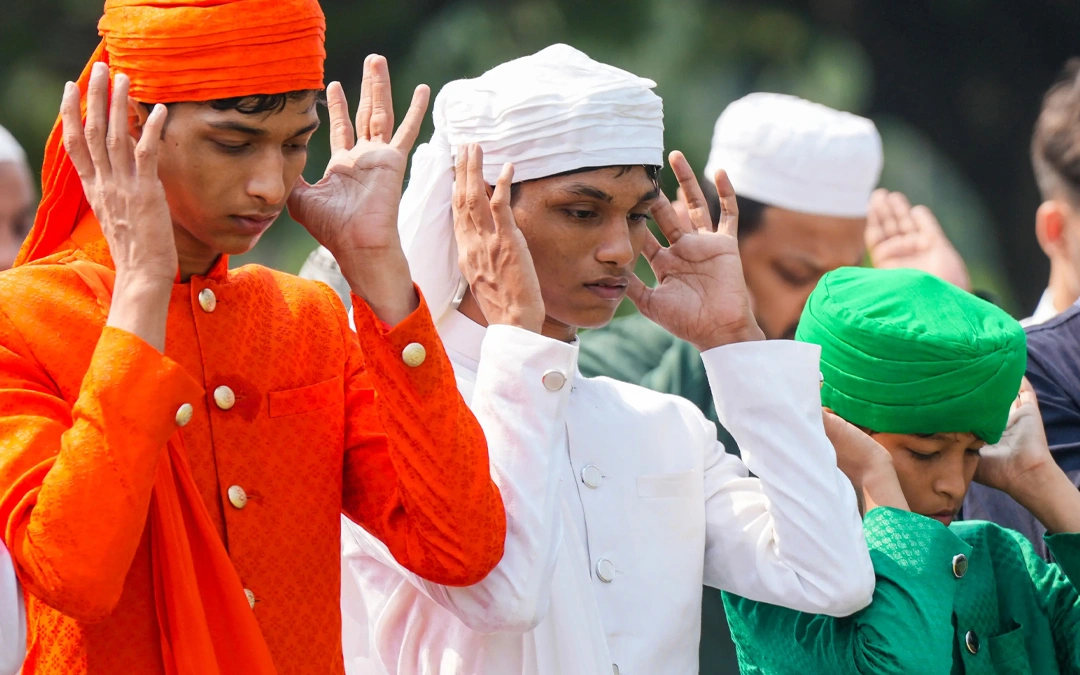Eid al-Adha—known as the Festival of Sacrifice—is one of the most spiritually significant festivals in Islam. While many associate it with the ritual of animal sacrifice, its real message is much deeper: submission to God, inner transformation, and compassion for others.
The Story of Faith and Surrender
The roots of Eid al-Adha lie in the powerful story of Prophet Ibrahim (Abraham). He had a dream in which God commanded him to sacrifice his beloved son, Ismail. Though it was a heart-wrenching test, Ibrahim prepared to obey. Just before the act, God replaced Ismail with a ram, showing that the true purpose was not bloodshed, but to test faith, trust, and surrender.
This moment is not about violence or ritual—it’s about letting go of what we hold most dear, if it stands between us and God.
The Quran clearly says:
“It is not their flesh or blood that reaches God, but your piety.” (Quran 22:37)
This verse teaches that God does not need our rituals—He looks at our intention, sincerity, and devotion.
The Meaning of Sacrifice Today
In earlier times, animals—especially cattle, sheep, and goats—were not just possessions; they were sources of food, livelihood, and survival. Offering such a valuable part of one’s wealth as a sacrifice was a true test of devotion and detachment. It wasn’t easy. People were giving up something deeply important to them—something that sustained their families. That act symbolized surrendering one’s attachments and placing higher awareness or spiritual truth above material needs. Today, for many, the act of sacrifice has become more symbolic—a sacrifice of money rather than something deeply personal. The challenge now is to reconnect with the true spirit behind the act—not just in what we give, but in how much of ourselves we’re willing to let go. Sacrifice in Islam is not limited to animals. The real question is:
- Have we sacrificed our ego?
- Have we given up greed, anger, or pride?
- Have we chosen humility, charity, and compassion?
The Prophet Muhammad (peace be upon him) said:
“The best among you is the one from whom good is expected, and from whose harm people feel safe.”
(Sunan al-Tirmidhi, Vol. 4, Book 37, Hadith 2263)
This hadith beautifully connects faith with ethical living. A true believer is a source of safety, peace, and hope for others.
Eid al-Adha as a Spiritual Summit
Eid al-Adha is not just a one-day celebration—it is a spiritual summit, a moment to pause and reflect:
- Am I living for a higher purpose?
- Am I willing to give up comfort to serve others?
- Am I becoming a better, more honest, and more humble person?
It’s a time for introspection, gratitude, and renewal of faith
In today’s world—divided by hate, selfishness, and materialism—the message of Eid al-Adha is more important than ever. It reminds us:
- True submission to God must be matched by service to humanity.
- Rituals are meaningful only when they lead to personal growth and moral responsibility.
- The best celebration is one that brings peace, kindness, and unity.
Eid al-Adha is a call—not just to perform a tradition—but to transform ourselves. To rise above ego and selfishness, and to live with sincerity, generosity, and humility.
Let this Eid not end with the day. Let its spirit stay alive in our actions, choices, and hearts—every day.
Discover more empowering stories and insightful content like this on GRISU TIMES, your go-to destination for inspiration and knowledge.
Follow GRISU TIMES on Instagram: https://www.instagram.com/grisutimes/

